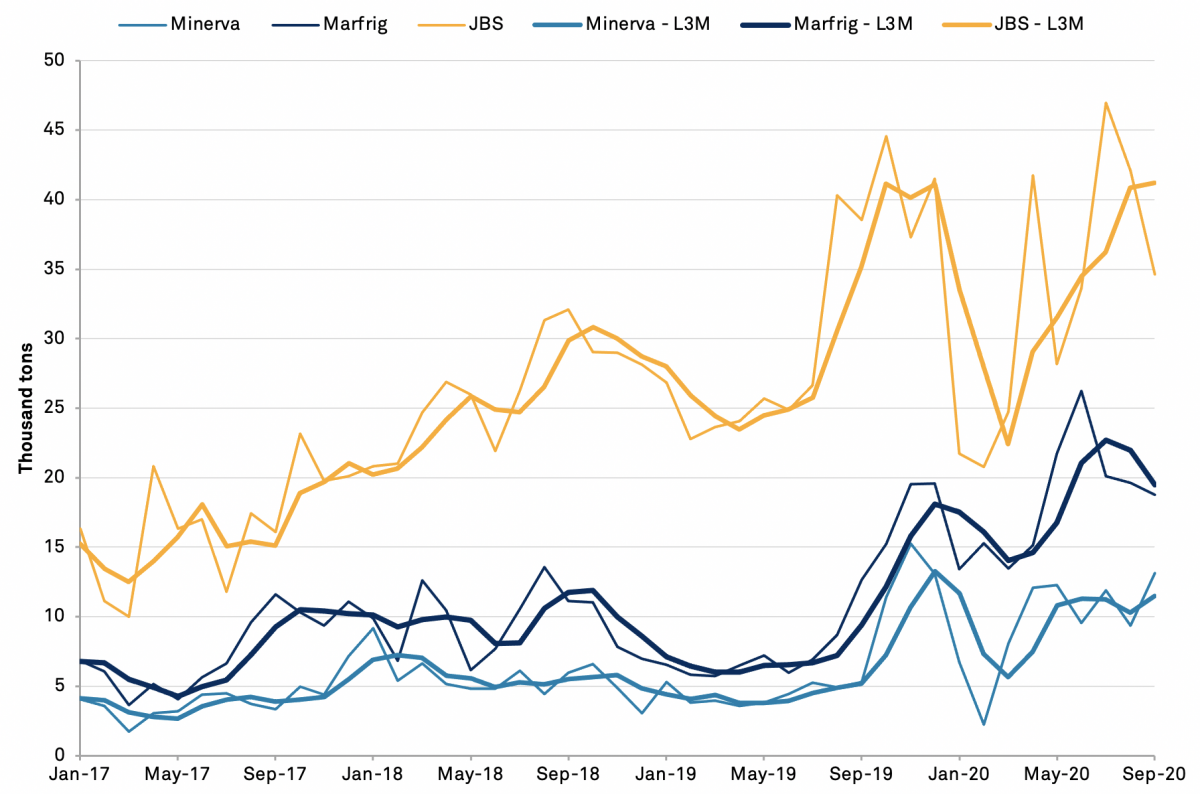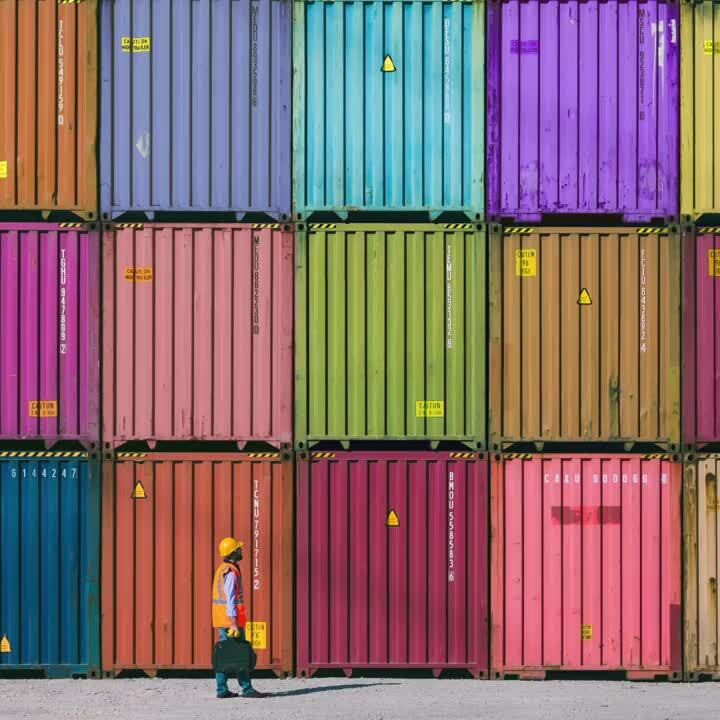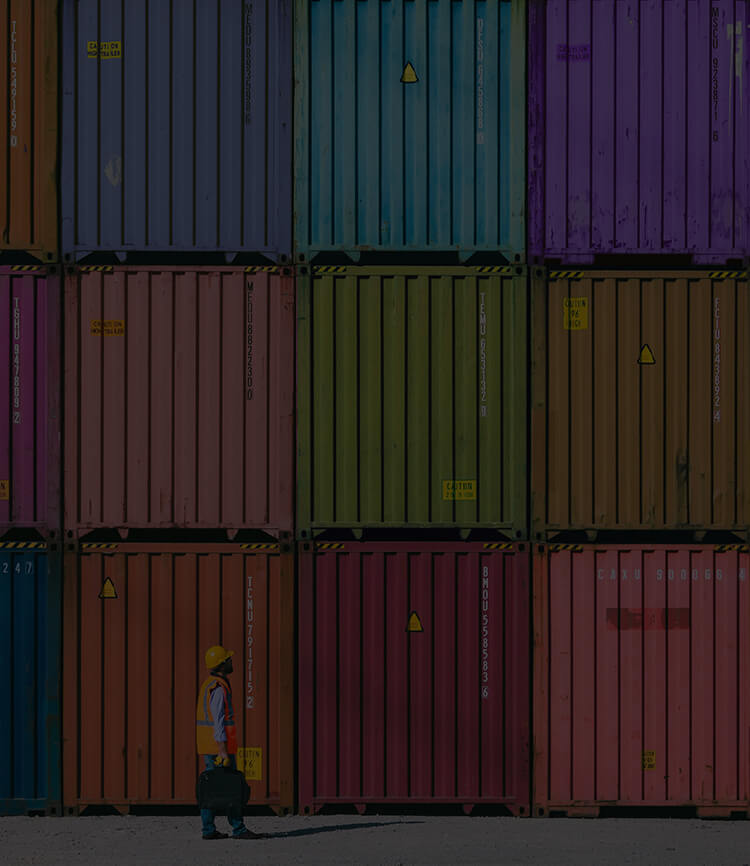RCEP
Signing of RCEP a Positive Sign for Multilateral Trade Relationships in Asia, but Impact on China’s Oil Market Growth to be Minimal in the Short-Term
China and 10 members of the Association of Southeast Asian Nations plus Australia, Japan, New Zealand and South Korea signed the Regional Comprehensive Economic Partnership agreement, or RCEP on Nov. 15. The new accord demonstrated Beijing's commitment of engagement in Asia-Pacific market, which is a breakthrough for multilateral trade relationships in the region. However, S&P Global Platts Analytics views the short-term impact on China oil market to be minimal.
Mammoth Asia Trade Deal Seen as Little Threat to U.S. Companies, for Now
U.S. companies should not be concerned at being left out of the largest trade deal in history, but the creation of the Asia-focused Regional Comprehensive Economic Partnership points to longer-term challenges for the U.S. after President Donald Trump eschewed closer ties with the fastest-growing region in the world.
Read the Full ArticleIndonesia’s RCEP Opportunities Led by Apparel, Risks for Autos
The signing of the Regional Comprehensive Economic Partnership (RCEP) trade deal by 15 countries creates the largest managed trade area in the world, following eight years of negotiations. As discussed in Panjiva’s research of Oct. 2 the deal represents a China-led attempt to define the rules of trade in Asia.
Read the Full Article
Chinese - Australian Tensions
Growing Tensions Stall New Chinese Investment in Australian LNG
Growing tensions between China and Australia, which have affected bilateral trade for commodities like coal and cotton, threaten to cloud the LNG sector with Chinese importers hesitant to enter new contracts with Australian LNG producers.
Australian gas exporters argue that their projects are not contingent on Chinese buyers in a growing Asian market. They also expect the new trade agreement -- the Regional Comprehensive Economic Partnership, or RCEP -- which was signed by 15 countries on Nov. 15, including the 10 ASEAN states, China, Australia, Japan, South Korea and New Zealand, to open new channels for LNG trade.
Key Takeaways
- Several executives from Chinese energy companies, including the three main national oil companies, said they don't expect ongoing spot trade to be impacted, but new deals with Australian gas producers had become difficult.
- Still, low cost suppliers like Russia and Qatar are actively engaging Chinese buyers, and Beijing may seek long-term diversification that allows it to target Australian LNG without impacting its own gas supply should relations deteriorate.

U.S. Elections
Methanol Industry Weighs Impact of US-Iran Relations, Global Decarbonization in 2021 and Beyond
The methanol industry is watching for changes in US foreign policy under the incoming Biden administration, as well as decarbonization policies that could create new opportunities for the product as a fuel.
Methanol trade flows have been altered in recent years owing to sanctions on Iran, but a potential shift in the US stance on the country could spur increased Iranian production.
Meanwhile on the demand side, there may be limits to growth potential from traditional applications in petrochemicals and formaldehyde production. A more promising outlet for the future could be the shipping sector, which is seeking out alternative fuels to lower emissions.
Markets Digest U.S. Election Results, Assess Potential Impact of Biden Win on U.S.-Asia Trade
The highlights in Asia on S&P Global Platts Market Movers with Rohan Somwanshi, editorial team leader for agriculture in India: Markets assess impact of Joe Biden's victory in the 2020 US election on US-Asia trade flows, Australian coal prices under pressure on geopolitical tensions with China, Dry bulk freight rates to remain in check for the rest of 2020, Eyes on China's liquidity, car production data
Watch and Share the VideoLife After the Elections: Quick Deal, No Deal or a Small Deal – U.K.-U.S. Relations
Trade negotiations between the U.K. and U.S. had made significant progress under the Trump administration, including completion of “much of the legal text” according to HM Trade Secretary Liz Truss.
Read the Full ArticleSection 232 Tariff Retention, Infrastructure Spending Top Priorities Under Biden: AISI
Maintaining the existing US Section 232 tariffs on steel imports and passage of a large-scale infrastructure bill are among the priorities the American Iron and Steel Institute is pushing for as President-elect Joe Biden is set to take office in January, according to AISI interim CEO Kevin Dempsey.
Read the Full Article
Meat & Agriculture
Pandemic Worries Meet Meat Demand Jump with Packing Safety Concerns
The sanitary standards of meat supply chains are back in focus after the Chinese government found evidence of SARS-COV-2 on packaged beef shipped from Brazil, Reuters reports. The shipment, linked to Marfrig, had been completed in August but had only recently been tested before use. That follows earlier Chinese restrictions on imports of poultry by Aurora in Brazil as outlined in Panjiva’s research of Aug. 20.
Panjiva’s data shows China was the largest consumer of Brazillian beef, accounting for 65.1% of exports in the 12 months to Sept. 30. It’s also been the fastest growing destination with exports to China from Brazil rising by 55.1% year over year in Q3’20. Shipments linked to Marfrig represented 18.7% of shipments to China and expanded by 107.2% in Q3’20 after a 220.5% increase in Q2’20. The largest supplier was JBS with growth of 17.2% in Q3 while Minerva was third with growth of 55.1%.
Key Takeaways
- Panjiva’s data shows that the leading exporters of beef by sea from the U.S. in the 12 months to Sept. 30 were JBS with 18.1% of total exports followed by Tyson Foods with 14.1%.
- U.S. seaborne exports of poultry to China have already surged, with a 197% year over year increase in September capping a year-to-date improvement of 103%.
- Shipments linked to Tyson, the largest exporter with a 15.8% share of exports in the past 12 months, climbed by 184% in September while Mountaire Farms’ rose by 133%. The growth has been led in percentage terms by a 432% rise in shipments linked to JBS in September.

Solar Supply
Human Rights Allegations in Xinjiang Could Jeopardize Solar Supply Chain
The solar industry's growing dependence on China's autonomous Xinjiang region for a critical raw material poses mounting risks to a wide range of companies as the U.S. government moves to confront Beijing over alleged human rights abuses there.
In 2019, when solar ranked as the world's top source of new power generating capacity, about one-third of the polysilicon the industry used to make solar panels came from Xinjiang, according to Johannes Bernreuter of Bernreuter Research. China as a whole accounts for about 80% of global capacity.With polysilicon-makers boosting production in Xinjiang, Richard Winegarner, a former industry analyst who retired in late 2019, said the region is poised to become "even more important" to the solar market in the coming years.
Those deepening ties come as Washington's scrutiny of labor conditions in the region intensifies. On the heels of a U.S. government report that described rampant abuse of Uighurs and other Muslim minorities in Xinjiang, the U.S. House of Representatives passed a bill in September that would ban goods made "wholly or in part" in the region unless the producers were proven not to have used forced labor. The near-unanimous vote came a week after U.S. Customs and Border Protection ordered officers to seize certain imports from Xinjiang, including cotton and computer parts.
Avoiding China Supply-Chain Risks, First Solar Soars
First Solar Inc., which has vertically integrated manufacturing operations in Ohio, Malaysia and Vietnam, has steered clear of heightened supply-chain risks related to alleged human rights abuses in China.
Read the Full ArticleTrump Revokes Bifacial Solar Panel Exemption, Slaps 18% Import Tariff
US President Donald Trump signed a proclamation Oct. 10 revoking a loophole that has allowed the import of "bifacial" solar panels.
Read the Full ArticleChinese Solar Panel, Wind Tower Importers Sue Trump Administration Over Tariffs
Solar panels and wind towers are among Chinese products imported into the US by companies that have filed suit against the Trump administration.
Read the Full Article
Oil & Gas
Iraq Could Limit Dependence on Iranian Energy Imports with Kurdish Gas: US official
Iraq's federal government could wean itself off Iranian energy imports by taking advantage of gas production in the semi-autonomous Kurdistan region, a US official said Nov. 23, as OPEC's second largest oil producer continues to come under pressure from Washington to part ways with Tehran.
"The US remains a steadfast champion of Iraqi sovereignty and continues to oppose Iran's efforts to undermine it," Mark Menezes, US Deputy Secretary of Energy, told a virtual Kurdistan conference organized by the US-Iraq Business Council.
Wintershall Dea CEO Remains 'Confident' Nord Stream 2 Gas Link Will be Completed
A little over 150 km of Nord Stream 2 remains to be laid in Danish and German waters, but the threat of US sanctions against companies involved in laying the pipeline has seen work suspended since the end of last year.
Read the Full ArticleLNG Project Tracker: Mexico Terminal Moves Ahead as 2nd U.S. Wave Flounders
A year that began with expectations of ample investment in LNG export infrastructure may end with no new U.S. projects getting commercially sanctioned.
Read the Full Article
Coal
Australia-Japan Hydrogen Project Eyes Full Operations by Next Decade: Conference
The Hydrogen Energy Supply Chain project between Australia and Japan eyes full commercial operations over the next decade and remains committed to delivering hydrogen from coal as the primary input, amid a slew of ongoing projects in Australia exploring the fuel's production from alternative feedstock, executives at this week's Australian Hydrogen Conference said.
Vietnam's Thermal Coal Imports Seen Resilient Through 2021 Despite Funding Challenges Ahead
Vietnam's seaborne thermal coal traders are optimistic the country's fossil fuel consumption will continue to rise through 2021 amid burgeoning demand for electricity production at the lowest cost, despite the funding and regulatory challenges that loom for new coal-fired power plants, market sources said Nov. 6.
Read the Full Article
Metals
Changing trade flows: How China is Helping CIS Steel Bounce Back
The CIS steel industry has emerged from pandemic demand slumps relatively quickly thanks to Chinese demand and government incentives in Russia. Although further challenges lie ahead, production cuts at steel mills appear to be less severe than at their European peers.
Platts Managing Editor Laura Varriale is joined by Platts Metals Editors Katya Bouckley and Wojtek Laskowski to discuss the current shape of Russia and Ukraine's steel industry.
EMEA Steel Players See No Early End to Protectionism with New U.S. President
European and Middle Eastern steel players see no early end to protectionism in steel markets with Democrat Joe Biden's confirmation as the next US president, market sources said after and immediately before Biden's victory in the presidential race was called over the weekend.
Read the Full ArticleSierra Leone Iron Ore Exits Global Market as Opaque Policy Sparks Mine Halts
Sierra Leone's iron ore mines remain at a standstill, with no early restart foreseen, after foreign miners' rights were confiscated, traders and producers said in the week started Nov. 15.
Read the Full Article



